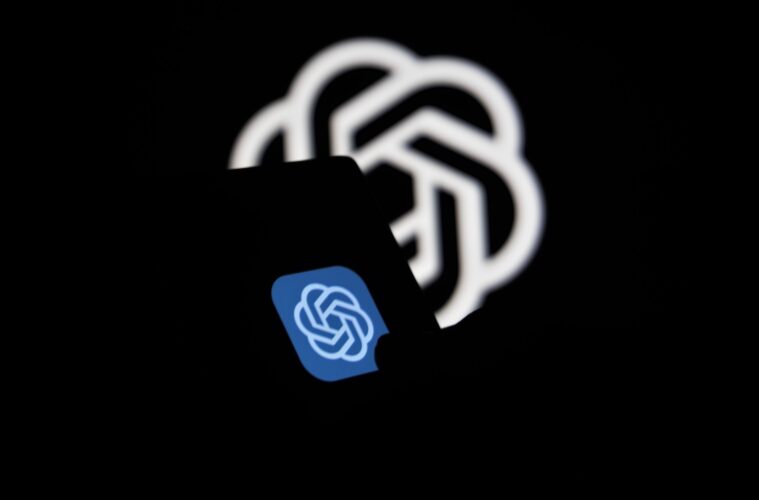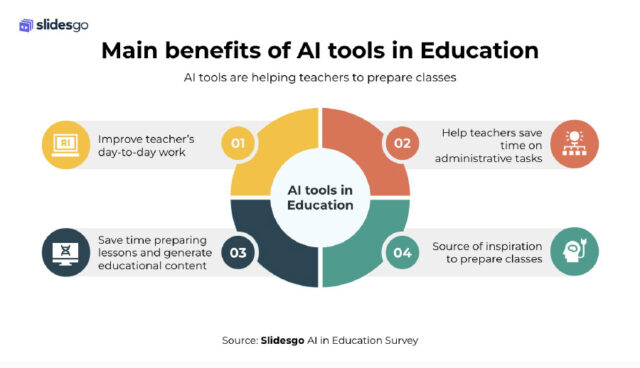Artificial intelligence (AI) has been considered a possible saviour of education systems worldwide, providing unprecedented access and capabilities that can revolutionise how teachers engage with students. However, integrating AI capabilities into existing school systems is complex. Programs must be carefully designed to meet educational needs while considering equity and student privacy concerns, alongside additional ethical considerations when building AI systems to serve vulnerable populations. This blog post will explore these considerations in depth, exploring their ramifications for the international adoption of AI-based tools in everyday teaching settings.
Understanding the Potential of AI in Education
Artificial Intelligence (AI) holds transformative potential in education, heralding a new era of personalised and dynamic learning. AI-powered tools can help tailor educational content to individual students, accommodating their unique learning styles, pacing, and comprehension levels. Moreover, AI can facilitate 24/7 virtual tutoring, simulate real-life scenarios for immersive learning, and automate administrative tasks, freeing educators’ time for more interactive instruction.
By harnessing machine learning algorithms, AI can also provide educators with valuable insights into a student’s progress and areas of difficulty, empowering them to intervene proactively and improve learning outcomes. However, despite its promising benefits, adopting AI in education necessitates thoughtful consideration of numerous complexities, such as ethical implications, data privacy, and equity of access.
The Challenges of Integrating AI in Schools
Despite AI’s immense potential in transforming education, its integration into school systems presents unique challenges. Firstly, the technical infrastructure required to support AI tools can be costly and complex, rendering it inaccessible to schools with limited resources. Second, the use of AI in education raises significant equity and accessibility concerns. Not all students have the same technology access level, and implementing AI could exacerbate existing educational disparities. Additionally, AI systems rely heavily on data, raising concerns about student information privacy and security.
Finally, the ethical implications of AI use in education cannot be ignored. There are concerns about the transparency of AI algorithms, the potential for bias in AI decision-making, and the impact of AI on the role of teachers. These challenges necessitate a balanced, thoughtful approach to integrating AI in schools. Amid these challenges, technologies such as the Chat GPT detector become crucial. The Chat GPT detector is an AI tool that can ensure the responsible use of AI in educational settings by monitoring and identifying potential issues in real-time, thereby helping address concerns related to data privacy, algorithm transparency, and bias.
Privacy and Ethical Concerns in AI Education Tools
The surge of AI in education brings forth important privacy and ethical issues that warrant close attention. AI applications, by their very nature, require a wealth of data to function—a requirement that, if mishandled, can lead to serious breaches of students’ privacy. Schools and AI service providers must ensure stringent data security measures to protect sensitive student information. Moreover, clear and transparent data policies are pivotal, detailing what data is collected, how it’s used, and with whom it’s shared.
Another ethical concern stems from the potential bias in AI algorithms, which may inadvertently lead to inequitable learning outcomes. Such biases can result from factors such as the dataset used for training the AI or the unconscious biases of the developers. To mitigate this, it’s crucial to employ a diverse team during the development process and constantly scrutinise and refine AI algorithms for fairness.
Lastly, the use of AI in education must be guided by a student-first philosophy, ensuring that AI tools enhance, not replace, human instruction and interaction. It means maintaining a clear demarcation between the roles of AI and humans in education and valuing and preserving the unique, irreplaceable elements of human teaching and learning.
Weighing the Pros and Cons
AI’s impact on student learning is a nuanced subject that requires careful consideration of its potential benefits and pitfalls. On the positive side, AI can greatly enhance personalised learning. It can adapt to each student’s learning pace and style, offering customised content and feedback to boost engagement and significantly improve learning outcomes.
Moreover, AI-powered analytics can provide teachers with real-time insights into each student’s performance, highlighting gaps and areas for improvement that may not be immediately apparent in traditional teaching methods. These data-driven insights can assist educators in making more informed decisions about their teaching strategies, ultimately benefiting the students’ learning experience.
However, the use of AI in education isn’t without its drawbacks. There’s the risk of over-reliance on technology, which could diminish human interaction’s value in the learning process. The necessity of data for AI operation also raises concerns about student privacy and data security. Additionally, the issue of accessibility cannot be overlooked. While AI can facilitate learning for some, it could also widen the digital divide, particularly for disadvantaged students who may lack access to necessary technology. Therefore, while AI represents an exciting frontier in education, its impact on student learning is multifaceted and requires careful evaluation and implementation.
Future Prospects of AI in Education
The future of AI in education looks promising, with tremendous opportunities for growth and innovation. AI has the potential to revolutionise adaptive learning, providing a personalised educational experience that can cater to each student’s individual needs. Those were some of the findings of a recent survey about AI in Education tools conducted by Slidesgo. With the advent of AI, we can envision a future where virtual tutors provide 24/7 assistance, and real-time analytics allow customised course correction and improvement.
Moreover, AI can play a pivotal role in democratising education, breaking down geographical barriers, and providing quality learning resources to students around the globe. Another exciting prospect is using AI in immersive technology, such as augmented and virtual reality, to create engaging, real-world simulations for experiential learning.
However, realising these prospects would require overcoming the challenges associated with AI. Schools and policymakers must work in tandem to address the legal, ethical, and technical issues that AI integration could bring forth. There’s a need for investments in infrastructure, training for educators, development of comprehensive data privacy policies, and an inclusive approach to ensure equitable access to AI advancements. AI’s future in education is bright, but it requires careful and collaborative efforts to harness its potential responsibly and equitably.





